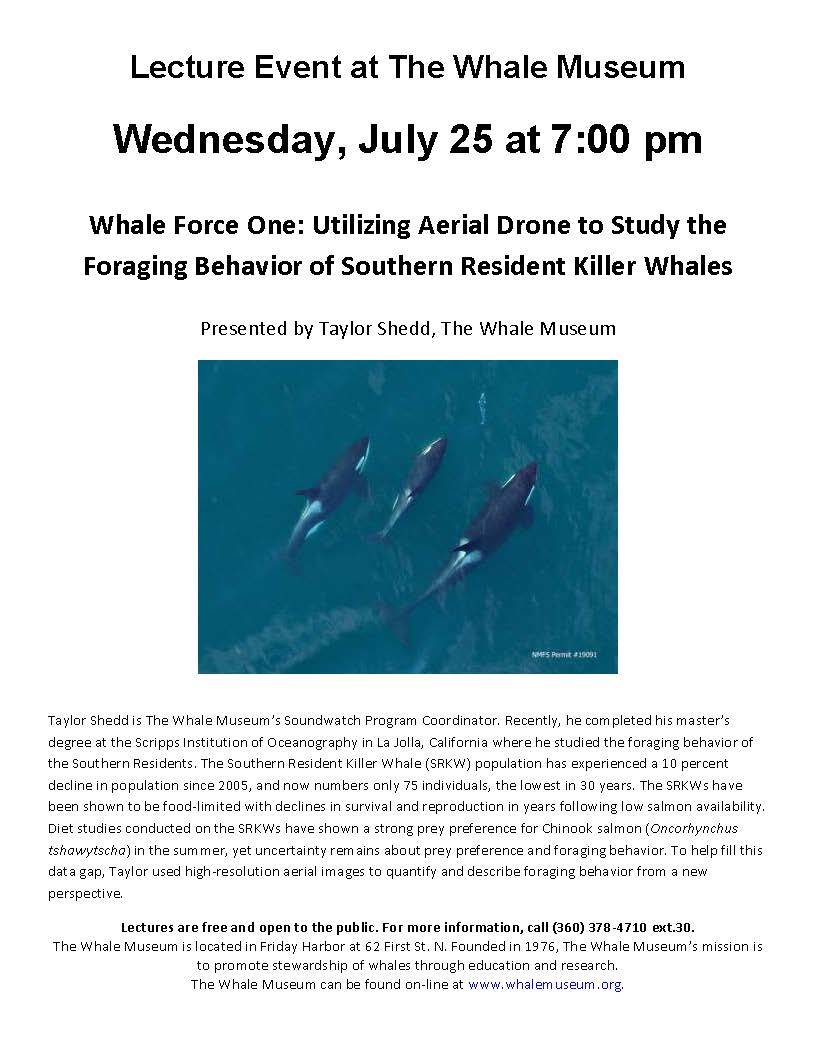Submitted by The Whale Museum
At 7 p.m., July 25, Taylor Shedd will present “Whale Force One: Utilizing Aerial Drone to Study the Foraging Behavior of Southern Resident Killer Whales” at the museum, as part of its summer lecture series.
Shedd is The Whale Museum’s Soundwatch program coordinator. He recently completed his master degree at the Scripps Institution of Oceanography in La Jolla, California where he studied the foraging behavior of the Southern residents. The Southern resident killer whale population has experienced a 10 percent decline in population since 2005, and now numbers only 75 individuals, the lowest in 30 years. The orcas have been shown to be food-limited with declines in survival and reproduction in years following low salmon availability. Diet studies conducted on the orcas have shown a strong prey preference for Chinook salmon (Oncorhynchus tshawytscha) in the summer, yet uncertainty remains about prey preference and foraging behavior. To help fill this data gap, Shedd used high-resolution aerial images to quantify and describe foraging behavior from a new perspective.
The Summer lecture series is dedicated to providing the local community and visiting public with knowledge and wonder of the natural world. The lectures are given by local or visiting experts in their field. Join as they share their recent research projects, stories and experiences. Each lecture is free and held at The Whale Museum. Donations are greatly appreciated. For more information, call 360-378-4710 ext.30. The Whale Museum is located in Friday Harbor at 62 First St. N. Founded in 1976, The Whale Museum’s mission is to promote stewardship of whales through education and research.



